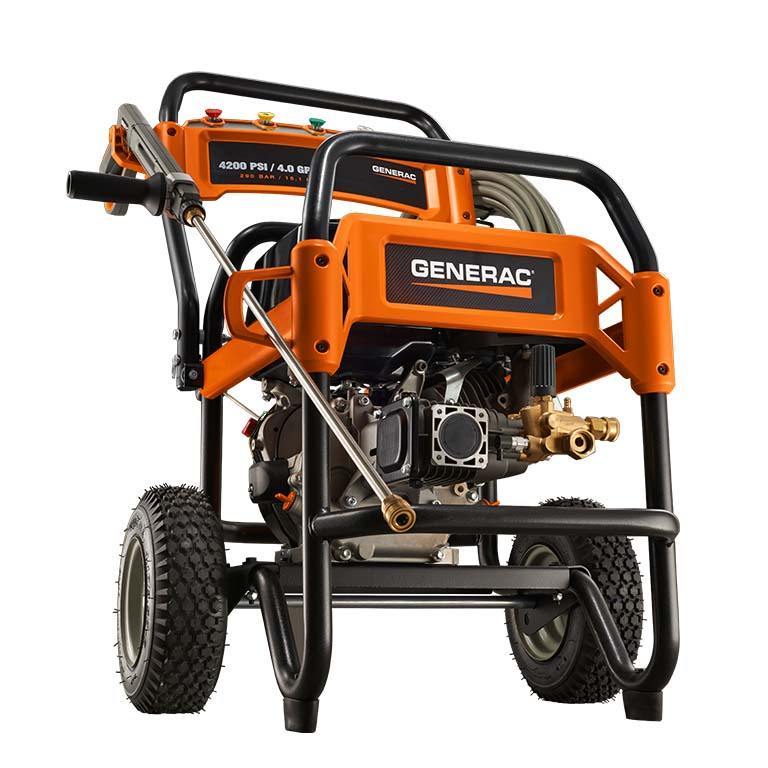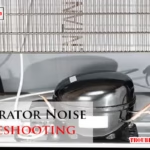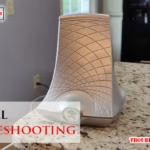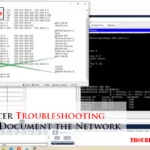Are you frustrated with your Generac power washer not performing as it should? You’re not alone.
Many users encounter issues that can be easily fixed with the right guidance. Imagine the satisfaction of turning a troublesome machine into a reliable powerhouse, ready to tackle any cleaning task. This article is your key to unlocking that potential.
Discover simple troubleshooting tips that will have your power washer running smoothly in no time. With every problem solved, you’re one step closer to achieving the pristine results you crave. Dive into the solutions and empower yourself with the knowledge to make your Generac power washer work for you, not against you. Let’s get started!
Common Issues
Generac power washers are trusted tools for home and garden cleaning. Yet, they can face some common issues. Knowing these can save you time and stress.
1. Power Washer Won’t StartCheck the fuel level in the tank. Low fuel can prevent starting. Look at the spark plug. It might need cleaning or replacement. Ensure the power switch is on. Also, inspect the oil level. Low oil can cause starting problems.
2. Pressure LossInspect the water supply connection. It must be secure. A clogged nozzle can reduce pressure. Clean it with a needle. Check the hose for leaks. Replace if necessary. Ensure the inlet filter is clear of debris.
3. Engine Runs RoughDirty air filters can cause rough running. Clean or replace them. Old fuel can lead to engine issues. Drain and refill with fresh gasoline. Check for any loose connections. Tighten if needed.
4. Water LeakingInspect all hose connections for tightness. Replace damaged O-rings. Check the pump for any visible cracks. Ensure the spray gun isn’t damaged. Consider replacing it if leaks persist.
5. Excessive NoiseLoose components can cause noise. Tighten any loose parts. Check the pump oil level. Low oil can lead to noisy operation. Ensure the engine is properly mounted. Vibration can increase noise levels.
No Power
Experiencing a power outage with your Generac power washer can be frustrating. You’re all set to tackle the grime, but nothing happens when you hit the power button. Before you give in to irritation, take a deep breath and consider a few simple troubleshooting steps. Identifying the cause of the power loss can get you back to cleaning in no time.
Check Power Source
First things first, ensure your power washer is plugged into a working outlet. You might not realize, but sometimes outlets can stop working due to tripped breakers or other electrical issues. Test the outlet with another device to confirm it’s delivering electricity. If the outlet works, move on to other potential causes.
Inspect Power Cord
Don’t overlook the power cord. It’s easy for cords to get damaged, especially if they’re frequently moved or stored improperly. Check for visible damage like cuts or frays. A faulty power cord can prevent your washer from getting the electricity it needs. If you spot any issues, consider replacing the cord to ensure your power washer operates safely.
Examine Circuit Breaker
If your power washer is still non-responsive, the circuit breaker might be the culprit. Find the breaker box and look for any switches that have flipped. A tripped breaker can disrupt power flow to your washer. Resetting the breaker may solve the problem. But ask yourself, why did it trip in the first place? Investigating the cause can prevent future disruptions.
When troubleshooting, patience is your ally. Have you ever faced an electrical issue and felt overwhelmed? Taking a methodical approach not only helps resolve the current problem but also builds your confidence for handling similar challenges in the future.
Low Water Pressure
Low water pressure in your Generac power washer can be frustrating. It makes cleaning tasks inefficient and time-consuming. Understanding the reasons behind low water pressure can help you fix the issue quickly.
Inspect Hose Connections
Loose or damaged hose connections often cause low water pressure. Check all connections on your power washer. Ensure they are tight and secure. Look for cracks or leaks in the hoses. Replace any damaged hoses immediately. This simple check can often solve pressure problems.
Clean Nozzle
Nozzles can become clogged with dirt and debris. A clogged nozzle reduces water pressure significantly. Remove the nozzle from the spray gun. Clean it using a small brush or a piece of wire. Make sure there is no blockage. Regular cleaning keeps the nozzle functioning efficiently.
Check Water Supply
Ensure your water source provides sufficient flow. Low water pressure may stem from inadequate supply. Check the water supply valve. Make sure it is fully open. Verify the hose is not kinked or twisted. Unrestricted flow is essential for optimal pressure.

Credit: www.ebay.com
Engine Won’t Start
Struggling with a Generac power washer that won’t start can be frustrating. Check the fuel level and ensure the spark plug is clean. Examine the air filter to see if it’s clogged, and inspect the oil level to prevent engine issues.
If you’re all set for a day of cleaning with your Generac power washer, but the engine refuses to start, it can be incredibly frustrating. But don’t worry, you’re not alone. Many users experience this issue, and the solution might be simpler than you think. A few checks and adjustments can often get your power washer up and running. Let’s explore some practical steps you can take to troubleshoot this issue.Fuel Level Check
First things first, ensure there’s enough fuel in the tank. This might sound obvious, but sometimes the simplest solutions are the ones we overlook. Check the fuel gauge or open the fuel cap to see if you need to add more gas. Use fresh fuel, as old gasoline can lose its effectiveness and prevent the engine from starting. Have you ever tried starting a car with an empty tank? It’s the same principle here.Spark Plug Inspection
Next, let’s take a closer look at the spark plug. The spark plug is crucial because it ignites the fuel-air mixture in the engine. A dirty or faulty spark plug can prevent starting. Remove the spark plug using a wrench and inspect it. If it’s dirty, clean it with a wire brush. If damaged, replace it with a new one. Remember, a clean spark plug equals a happy engine.Air Filter Examination
Lastly, examine the air filter. A clogged air filter can suffocate your engine, preventing it from starting. Remove the air filter cover and take out the filter. If it’s dirty, wash it with water and let it dry completely before placing it back. In some cases, replacing it might be necessary. Could a simple filter really be the cause of your woes? Yes, it can. By following these steps, you can often diagnose and fix the issue of an engine that won’t start. Have you faced this problem before? What other tips do you have? Share your experiences in the comments below.Pump Issues
Generac power washers often face pump issues, causing decreased water pressure and cleaning efficiency. Troubleshooting might involve checking for clogs, inspecting seals, or ensuring proper hose connections. Regular maintenance and timely repairs can help maintain optimal performance.
If you’re experiencing issues with your Generac power washer, the pump might be the culprit. It’s crucial to address pump problems quickly to keep your machine running smoothly. Let’s dive into some common pump issues and how you can tackle them effectively.Check For Leaks
Leaks are a common issue with power washer pumps. Start by thoroughly inspecting the pump and hose connections. Look for any visible cracks or worn-out seals. An unnoticed leak can cause pressure loss and inefficient cleaning. If you notice water escaping where it shouldn’t, you might need to tighten the connections or replace faulty components. Regular inspection can save you from bigger headaches down the line. Have you ever considered how much a small leak can affect your cleaning efficiency?Inspect Seals And Valves
Seals and valves are essential for maintaining pressure. Over time, they can wear out or become damaged, leading to performance issues. Carefully check the seals for any signs of wear or damage. Replace any that appear compromised. Similarly, inspect the valves for blockages or debris that might be hindering their function. A well-maintained pump ensures optimal performance. Neglecting these small components can lead to costly repairs or replacements. Are you giving your power washer the attention it deserves?Clean Inlet Filter
The inlet filter plays a crucial role in protecting your pump from debris. If it’s clogged, it can restrict water flow and strain the pump. Remove the filter and give it a good rinse under running water. Use a soft brush to remove any stubborn particles. A clean filter ensures that your pump operates efficiently, preventing unnecessary wear and tear. When was the last time you checked your inlet filter? Keeping it clean can significantly extend the life of your power washer.
Credit: www.generac.com
Unusual Noises
Experiencing unusual noises from your Generac power washer can be concerning. These sounds often indicate underlying issues that need attention. Properly identifying and addressing them can ensure your machine runs smoothly. Let’s explore common noise sources and how to fix them.
Identify Source Of Noise
Start by pinpointing the noise source. Listen closely while the washer operates. Is the sound coming from the engine or pump? Different noises can suggest specific problems. Rattling might mean loose parts. Grinding could indicate pump issues. Identifying the sound’s origin helps narrow down the troubleshooting process.
Loose Parts Check
Loose parts often cause unusual noises. Inspect the washer’s components carefully. Check nuts, bolts, and screws for tightness. Look at the frame and handle. Vibrations can loosen these over time. Tighten any loose parts to reduce noise. Regular checks prevent potential damage.
Pump Maintenance
Pump maintenance is crucial if grinding noises occur. First, check the pump oil level. Low oil can cause friction and noise. Refill as needed. Inspect for clogs or debris inside the pump. Clean thoroughly if found. This ensures smooth operation. Regular maintenance prolongs pump life.
Overheating
Generac power washers can overheat if used for long periods without breaks. Ensure proper ventilation and check for blockages. Regular maintenance helps prevent overheating and prolongs the machine’s life.
Overheating can be a frustrating issue when using your Generac power washer. It might feel like your machine is working against you instead of with you. This can interrupt your cleaning projects and potentially damage the equipment. Understanding why your power washer overheats and how to prevent it is crucial to keeping it running efficiently.Monitor Operating Temperature
Always keep an eye on your power washer’s operating temperature. Most models have a recommended temperature range to ensure optimal performance. If you notice the machine getting hotter than usual, pause and let it cool down. This simple step can prevent long-term damage and keep your washer functioning smoothly.Inspect Ventilation
Proper ventilation is key to preventing overheating. Make sure the air vents on your power washer are not blocked by dirt or debris. Clean them regularly to maintain good airflow. Think of it like opening a window in a stuffy room—fresh air keeps things cool and running efficiently.Check Oil Levels
Low oil levels can cause the engine to overheat quickly. Regularly check and maintain the oil levels in your power washer. Top off with the recommended oil type when needed. This simple maintenance task can significantly extend the life of your machine. Ever wondered how often you should check the oil? Make it a habit every time you fill up the gas tank. This routine ensures you never run out unexpectedly. By keeping these points in mind, you can tackle overheating issues effectively. A well-maintained power washer will reward you with years of reliable service. So, are you ready to get your Generac back to its peak performance?
Credit: www.ebay.com
Maintenance Tips
Maintaining your Generac power washer ensures its longevity and performance. Regular upkeep minimizes unexpected issues and enhances efficiency. Let’s explore essential maintenance tips to keep your power washer in top shape.
Regular Cleaning
Keep your power washer clean to prevent dirt buildup. Wipe the exterior with a damp cloth after every use. Check nozzles for blockages to maintain optimal pressure. Clean clogged nozzles with a small brush or a pin. Also, ensure the water inlet is free of debris.
Scheduled Servicing
Regular servicing is crucial for your power washer. Follow the manufacturer’s service schedule for best results. Change the oil every 50 hours of use or annually. Replace spark plugs and air filters as needed. These simple steps ensure your machine runs smoothly.
Proper Storage
Proper storage extends the life of your power washer. Store it in a dry, cool place away from direct sunlight. Drain all water to prevent freezing in cold climates. Disconnect hoses and wrap them neatly to avoid damage. Cover the machine to protect it from dust.
When To Seek Professional Help
Difficulty starting or inconsistent pressure from a Generac power washer signals the need for expert help. Strange noises or leaks require professional inspection. Immediate action can prevent further damage.
Experiencing issues with your Generac power washer can be frustrating. There are times when fixing it yourself isn’t the best option. Knowing when to call a professional can save time and prevent further damage.Complex Mechanical Issues
Mechanical problems can be tricky. If your power washer has leaking seals or a broken pump, it’s best to consult an expert. These components are sensitive and require specialized tools. Attempting repairs without knowledge can worsen the situation.Electrical Problems
Handling electricity can be dangerous. If your power washer doesn’t start, check the power source first. If issues persist, like blown fuses or faulty wiring, seek professional help. Electrical repairs require training to ensure safety.Persistent Malfunctions
Some issues refuse to go away. If you’ve tried fixes and the problem remains, it’s time for expert advice. Persistent issues can lead to more severe damage over time. A professional can diagnose and resolve the root cause efficiently. `Frequently Asked Questions
How Do I Fix A Generac Power Washer That Won’t Start?
Check the fuel level. Ensure the spark plug is clean. Verify the air filter is not clogged.
Why Is My Generac Power Washer Losing Pressure?
Inspect the nozzle for blockages. Check the hose for leaks. Ensure the water supply is consistent.
What Causes My Generac Power Washer To Stall?
Examine the carburetor for dirt. Check fuel quality. Ensure the engine gets enough air.
How Can I Stop My Generac Power Washer From Leaking?
Tighten hose connections. Check seals for wear. Replace damaged o-rings.
Why Is My Generac Power Washer Vibrating Excessively?
Ensure all bolts are tight. Check for damaged components. Balance the pump properly.
Conclusion
Troubleshooting a Generac Power Washer doesn’t have to be hard. Just follow these simple steps. First, check connections and fuel levels. Next, inspect hoses for leaks or clogs. Regular maintenance can prevent many issues. Clean filters and replace worn parts promptly.
Always read the manual for specific guidance. If problems persist, consider consulting a professional. Remember, safety comes first. Keep your power washer running smoothly. Enjoy efficient cleaning without hassles. With these tips, you’re prepared for any challenge. Stay proactive, and your Generac Power Washer will serve you well.
Happy cleaning!






